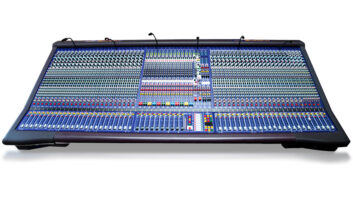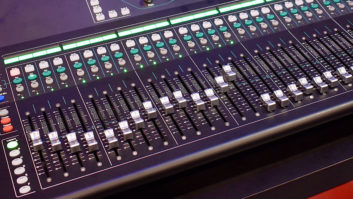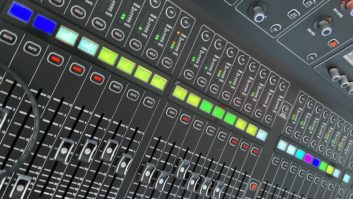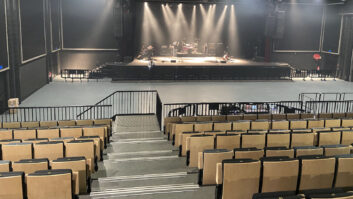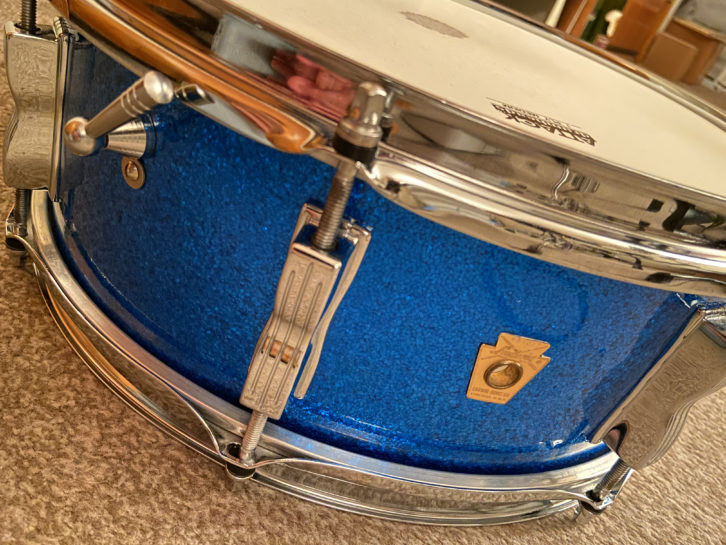
Sweetwater, a major retailer of musical instruments and audio gear, recently announced the launch of the Sweetwater Gear Exchange, a marketplace where individuals can buy and sell equipment online.
Much like Reverb and eBay, the Gear Exchange allows users to set up an online storefront, list their items and attract potential buyers. New sellers will experience a brief hold on the funds generated by their first sale, enabling the buyer to receive and inspect their purchase; funds from subsequent sales are not subject to the hold. Seller fees amount to 7.5% (a 2.5% processing fee and a 5% seller fee), but the company is offering sellers a limited-time option to receive payout in the form of a Sweetwater e-Gift card, in which case all fees are waived. Absolutely brilliant.
Going back for quite a few years, Sweetwater has sponsored an online bulletin board called the Trading Post, where users could post ads to buy or sell gear, free of charge. Once a buyer and seller connected, the transaction took place privately, off-site, and (as with all online marketplaces) there was the possibility for shenanigans on either side. To protect buyers, Sweetwater will have a team of administrators monitoring the Gear Exchange for potential security risks, though it remains to be seen if they will adopt a feedback-based merit system similar to those used by Reverb and eBay as a means of vetting buyers and sellers.
Read more Mix Blog Live: Off the Beaten Path.
Anyone involved with the audio or MI industries knows well that eBay and Reverb are active, well-established marketplaces for used and new gear. In the eyes of many a seller, eBay fees have grown a little out of hand. A typical transaction is subject to a commission of around 13%, all said and done. In 2021 eBay revised a portion of its fee structure, reducing seller fees on guitars and basses to 5.85% of the total amount of the sale up to $7,500 per item, plus an additional 2.35% on the portion of any sale of a single item over $7,500. Unfortunately, they do not extend that courtesy to people selling audio equipment, drums, keyboards or other categories of MI-related gear.
One of the attractions of Reverb is its 5% selling fee, but the audience for Reverb is much smaller than that of eBay. It’s obvious that there’s money to be made for hosting such a marketplace, and Sweetwater is leveraging its brand pedigree to attract buyers and sellers.
As far back as when the first Les Paul was sold to a musician who later discovered they preferred a Strat, there has been a strong market for used musical instruments. Trade-ins, trade-ups, pawn sales, shoestring budgets, overdue rent, and a waning interest in the instrument have been motivating factors for selling or purchasing used. To some extent, there’s less buyer risk when purchasing an instrument or a piece of gear that’s pre-owned: someone else has already “driven the car off the lot” (i.e. taken a loss), so if you decide in two months that you don’t like that used Fender Strat, there’s a good chance that you can get back what you paid for it. Of course, you’ll have to justify to the IRS that you’re not buying and selling for profit, but that’s a topic for another time.
The used marketplace is also fueled by buyers or collectors in search of items constructed from materials that are now outlawed for use in manufacturing (some species of wood, for example), folks who seek out a higher build quality than might currently be available, and people who just plain change their minds about an item. Musicians aren’t the only ones who can be fickle. Plenty of aspiring engineers outgrow the gear in their arsenal as their ears and client lists evolve, selling an old, less-favored microphone to help finance another used or new mic that lives in a higher price bracket and might serve to attract potential customers. Trade-in and trade-up can be spurred on by the quest for the Holy Grail (whatever that may be), and maybe a primal lust for vintage gear! Then there’s always those pieces of gear that are simply not in production any longer and can only be purchased on the second-hand market.
In an odd twist of fate, availability is another issue that helps drive the used market these days, particularly post-pandemic. For example, there’s a high-end tube compressor currently in production with a selling price around $4,000 new, but wait times are reported to be around six months. If you simply can’t wait, you can buy one used at prices ranging from $4,200 to $4,500. It’s simple supply and demand, and though that’s a bit rich for my blood there are people who will pay the premium. That’s why the used market for MI gear will continue to remain alive and well—in any economy.
